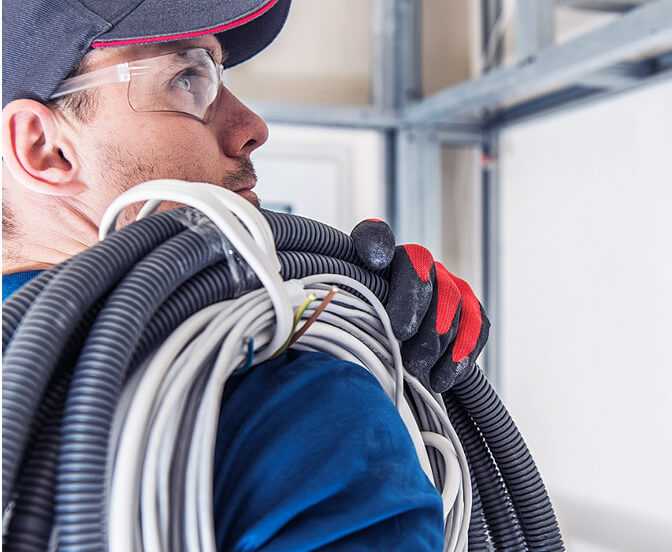
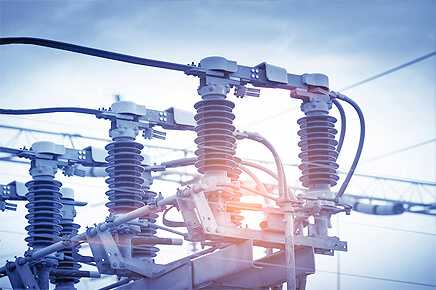
What Every Homeowner Should Know About Electricians
At our home and in a commercial space, normal routine activities will certainly come to a standstill without an electrician. Having said this, let us first understand who an electrician is, and in this blog, we can also take a closer look at related subjects such as electrical services near me, electric repair service, general electric customer service, emergency electrical service, and residential electrical services.
Who is an electrician?
In the electric repair service domain, an electrician is a tradesperson who specializes in the electrical wiring of buildings, stationary machines, and related equipment. Electricians may be employed in the installation of new electrical components or the maintenance and repair of existing electrical infrastructure. Electricians may also specialize in wiring ships, airplanes, and other mobile platforms, as well as data and cable.
What Every Homeowner Should
Know About Electricians
As a homeowner, when you look for electrical services near me, you are sure to find a long list of electricians. However, before you take the help of an electric repair service or an individual electrician, you may have the following aspects in mind
Make sure your electrician is licensed and insured. All electricians should have liability insurance and workers’ compensation coverage. It is important to check that the electrician is licensed, qualified, and experienced in the type of work you require
Check about safety. Find out what safety measures the electrician is taking to protect your home and family. Ensure the electrician is following the safety guidelines set by the National Electrical Code.
Ask about additional fees. Some electricians may charge additional fees for extra work or materials required. Make sure you know what these fees are in advance.
Keep up-to-date with technology. Make sure the electrician is up-to-date on the newest technology. This can make a difference in the safety and reliability of the electrical system in your home.
Make sure that you ask for an estimate. Ask the electrician for an estimate for the job you need to be completed and compare it to other estimates. Electricians may charge by the hour or by the job, so ensure you understand what you’re getting.
Ask about warranties. Inquire about warranties on the work performed. Most electricians will offer a warranty on their workmanship and the parts they use.
Ask for references; request a list of customers that the electrician has worked for in the past and call them to ascertain if they were satisfied with the work.
Ensure that you are aware of the scope of the project. Make sure you understand the scope of the project before hiring an electrician. This includes the materials that will be used and the labor involved.

As a homeowner, you can keep in mind these aspects of an electrician. Besides knowing the important aspects of an electrician, it is equally important to understand the different categories of an electrician.
Different categories
of an electrician
There are different categories in which an electrician can be classified based on their roles and responsibilities. We have listed a few of them. Depending on the nature of the work they do, electricians may be broadly classified into the following
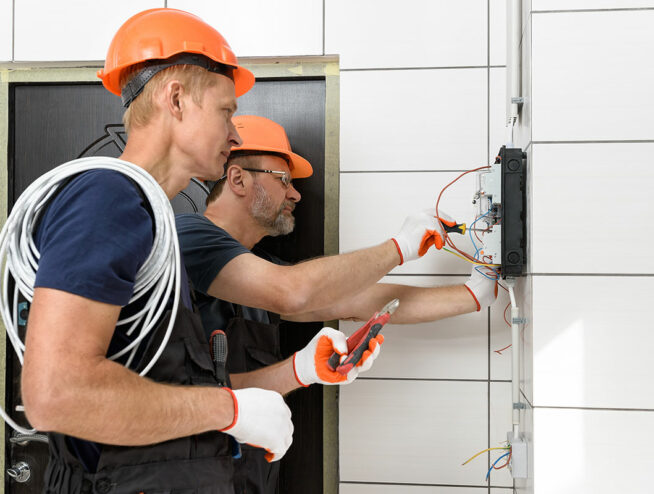
Residential Electricians
Residential electricians are responsible for installing, maintaining, and repairing electrical wiring, fixtures, and other electrical components in homes and other residential structures. They must be familiar with the codes, regulations, and safety issues related to residential electrical work.
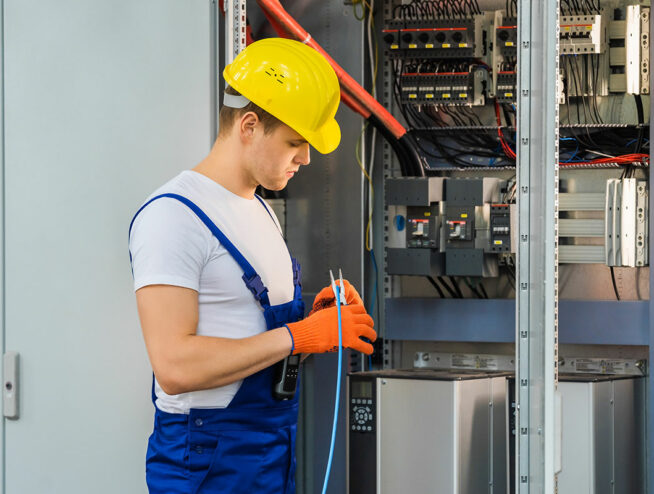
Commercial Electricians
Commercial electricians are responsible for installing, maintaining, and repairing electrical wiring, fixtures, and other electrical components in commercial buildings such as office complexes, retail stores, and factories. They must be familiar with the codes, regulations, and safety issues related to commercial electrical work.
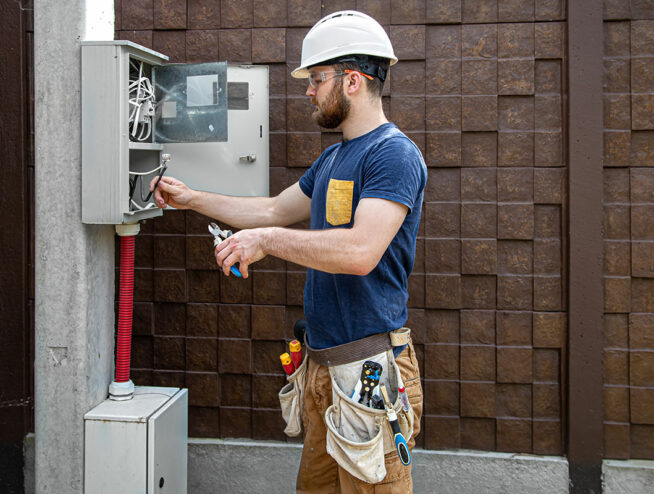
Industrial Electricians
Industrial electricians are responsible for installing, maintaining, and repairing electrical wiring, fixtures, and other electrical components in industrial facilities such as factories, refineries, and mines. They must be familiar with the codes, regulations, and safety issues related to industrial electrical work.
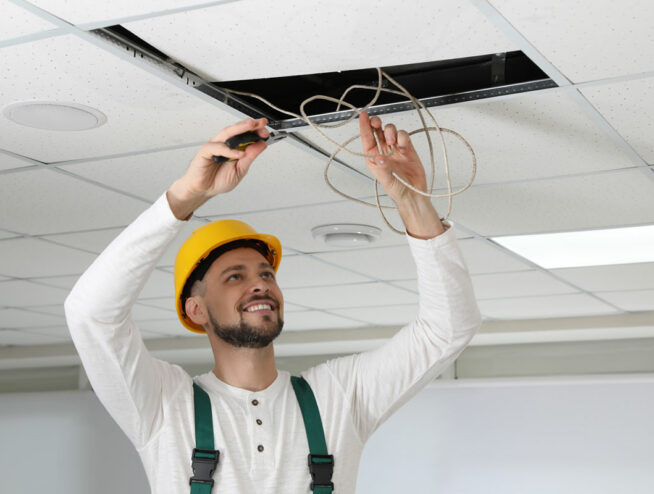
Automotive Electricians
Automotive electricians are responsible for installing, maintaining, and repairing electrical wiring, fixtures, and other electrical components in vehicles such as cars, trucks, and boats. They must be familiar with the codes, regulations, and safety issues related to automotive electrical work.

Fire Alarm Specialists
A Fire Alarm Specialist is a person who is qualified to install, maintain, and repair fire alarm systems. They are responsible for ensuring that all components of the system are functioning properly and that the systems comply with local fire codes. They are also responsible for providing maintenance and testing services to ensure the system works correctly.

Lighting Specialists
A Lighting Specialist is a professional who specializes in the design, installation, and maintenance of lighting systems, fixtures, and controls. They often have a technical background and knowledge of the latest lighting technologies and techniques. They can help create attractive and efficient lighting solutions for commercial, residential, and industrial spaces.

Solar Electrician
A solar electrician is a professional who works in solar energy, installing, maintaining, and repairing solar power systems. They typically know of electrical, mechanical, and other related systems, and may work both on-site and in the office, depending on the specific job. Solar electricians may also be involved in the design and installation of solar panels and other related equipment.

Low Voltage Electricians
A Low Voltage Electrician specializes in installing, maintaining, and repairing electrical systems and components that operate at a low voltage, typically less than 1000 volts. Low Voltage Electricians are responsible for installing and maintaining communications equipment, lighting systems, security systems, fire alarm systems, and other electrical systems. They must also have a thorough understanding of local and national electrical codes.

Telecommunications Electrician
A Telecommunications Electrician is a professional who installs, maintains, and repairs telecommunications networks, such as phone lines, cable TV, and internet connections. They work with various tools, such as power drills, saws, ladders, and fiber optic splicers, to install and maintain communication systems. Telecommunications Electricians often work for telephone companies, cable companies, and other communications service providers.

Security System Specialists
A Security System Specialist is a professional who designs, installs, maintains, and repairs security systems such as access control systems, CCTV cameras, and other related equipment. They need to have a comprehensive understanding of the security industry, emerging technologies, and related regulations. Security System Specialists are also responsible for ensuring that a company’s security systems are up-to-date and compliant with any relevant laws and regulations.
Conclusion
Overall, it is important to understand the basics of electrical work and to take the necessary steps to ensure that your home is safe and compliant with local regulations. Using a qualified electrician who is experienced in the type of job you need to be done is essential to ensure the job is done properly. Be sure to research and ask questions to find the right electrician for your home. Lastly, staying up to date with regular electrical maintenance can help to keep your home safe and prevent costly electrical repairs.
